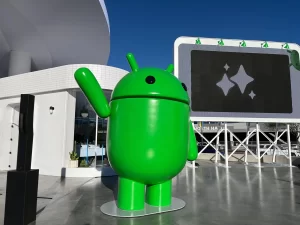Google Describes How AI May Affect Your Phone in 2024 and Later
AI is now present in new features, but in the future, the software on your phone may rely more on it.

The future of smartphones, as envisioned by leaders like Sameer Samat, seems deeply intertwined with the evolution of AI. It’s fascinating to see how this technology is gradually redefining the way we interact with our devices.
Generative AI, like the one powering ChatGPT, holds immense potential to transform the smartphone experience. Samat’s comparison of smartphones to cars makes a lot of sense—it’s a gradual transition, not an abrupt shift. AI’s role is about enhancing tasks, much like how autonomous driving features are gradually being integrated into vehicles.

The changes we’ve seen so far, such as AI-powered text rewriting and photo manipulation, are just the beginning. The real shift might involve a significant transformation of the phone’s interface, although it’ll likely be a slow process to ensure users feel comfortable.
AI’s evolution isn’t solely about voice assistants; it’s about understanding natural language deeply and executing actions based on that understanding. And with advancements in on-device processing via powerful chips like Google’s Tensor processor and Qualcomm’s Snapdragon 8 Gen 3, privacy and efficiency are being prioritized.
Considering the strides made by Google, Samsung’s Galaxy AI, startups like Rabbit with AI-based interfaces, and even expectations of Apple injecting more AI into iOS, it’s evident that this technological revolution is widespread across the smartphone industry.
The promise of generative AI might indeed be the spark needed to excite consumers and drive them toward upgrading their devices. Its ability to make tasks easier, more intuitive, and even feel futuristic could certainly be the defining factor in enticing people to embrace the next generation of smartphones. (source: CNET)

